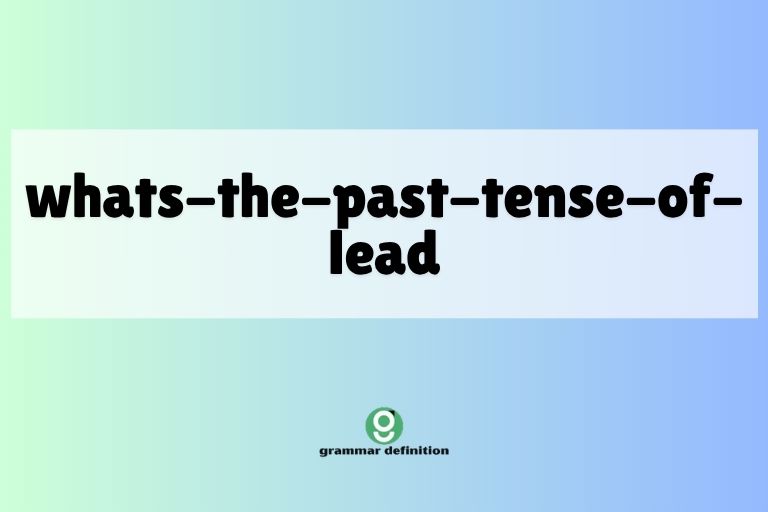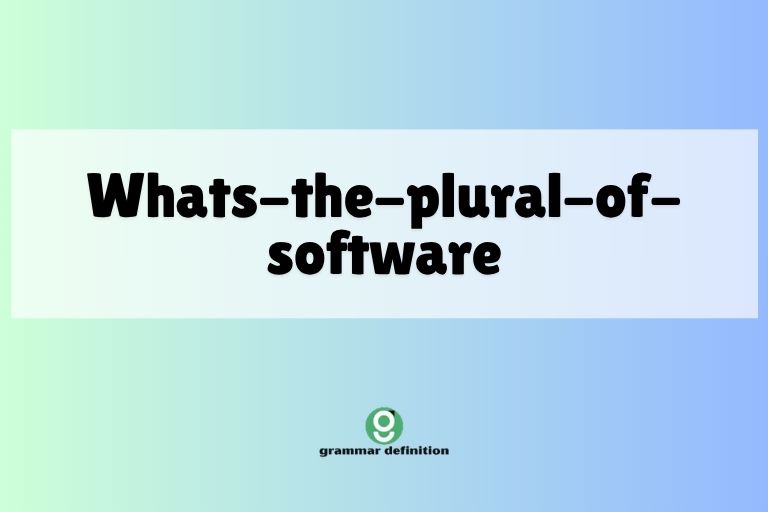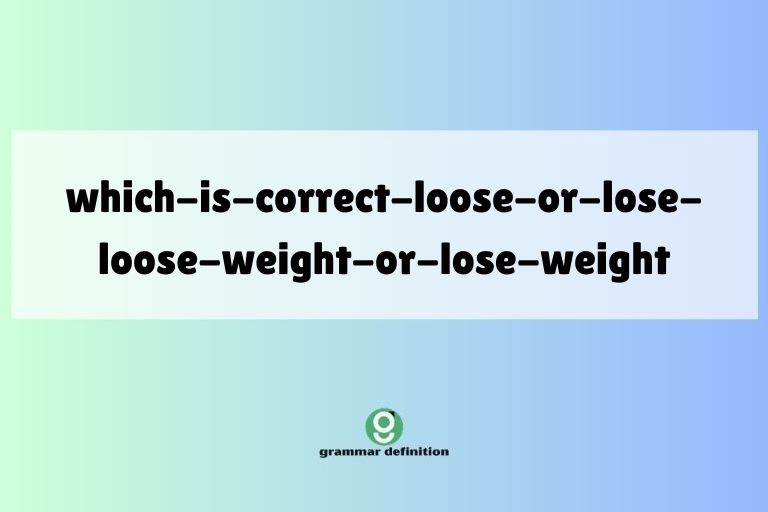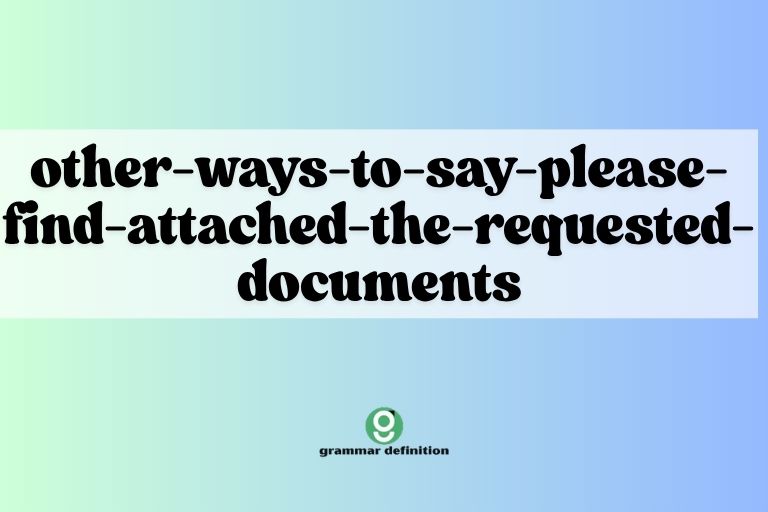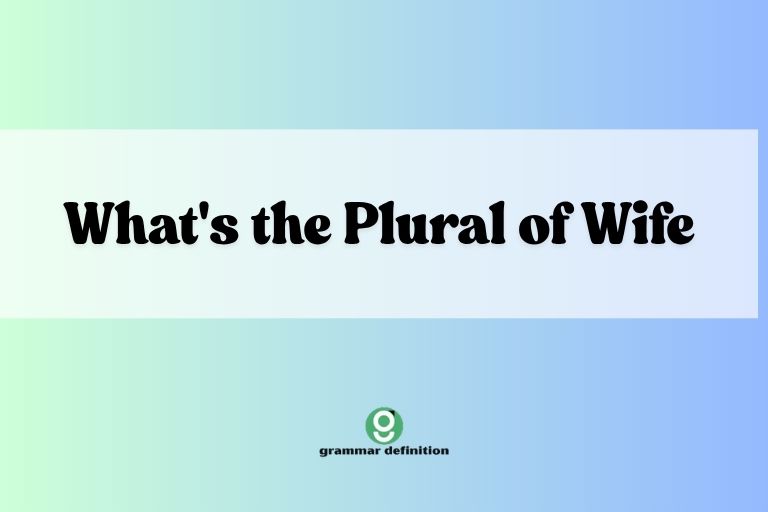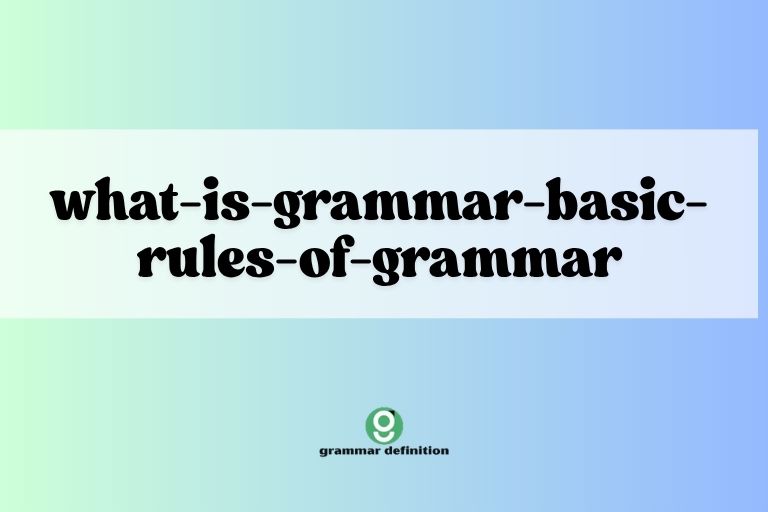Infer vs. Imply: Mastering the Nuances of Communication
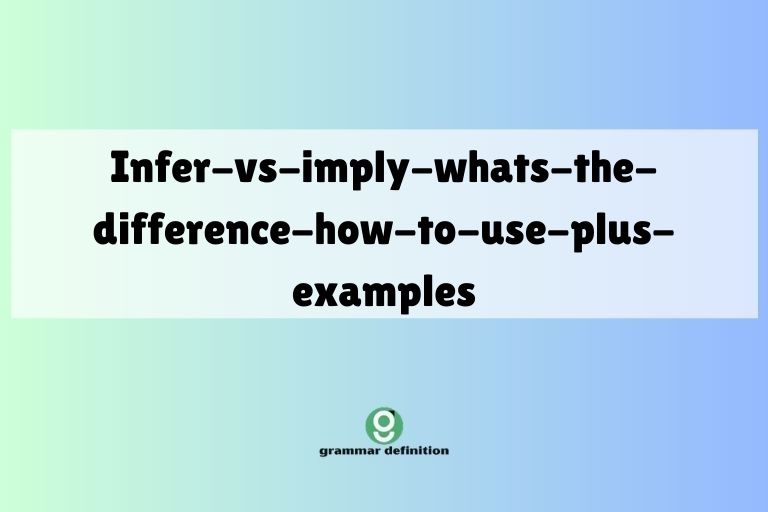
Understanding the difference between “infer” and “imply” is crucial for clear and effective communication. These two words, often confused, represent opposite sides of the communication coin.
“Imply” refers to what a speaker or writer suggests, while “infer” refers to what a listener or reader deduces. Mastering their usage enhances both your comprehension and expression, preventing misunderstandings and strengthening your ability to convey and interpret information accurately.
This article will provide a comprehensive guide to understanding and using “infer” and “imply” correctly, benefiting students, professionals, and anyone seeking to improve their English language skills.
This guide breaks down the definitions, structural nuances, and practical applications of “infer” and “imply.” Through detailed explanations, examples, and practice exercises, you will learn to distinguish between these terms confidently and use them accurately in various contexts. By mastering these concepts, you’ll improve your ability to both express yourself clearly and understand what others are truly communicating.
Table of Contents
- Introduction
- Definitions of Infer and Imply
- Structural Breakdown
- Examples of Infer and Imply
- Usage Rules
- Common Mistakes
- Practice Exercises
- Advanced Topics
- Frequently Asked Questions (FAQ)
- Conclusion
Definitions of Infer and Imply
To truly understand the difference between “infer” and “imply,” we must first define each word and explore their individual meanings.
Definition of Infer
Infer means to deduce or conclude (something) from evidence and reasoning rather than from explicit statements. It involves drawing conclusions based on available information. The person who infers is the receiver of the message, actively interpreting what is being communicated. Inferring is an active process of interpretation.
For example, if someone says, “It’s cold in here,” you might infer that they want you to close the window. They didn’t explicitly ask you to close the window, but you deduced that was their intention based on their statement.
Definition of Imply
Imply means to suggest (something) without stating it directly. It’s about hinting at something or conveying an idea indirectly. The person who implies is the sender of the message, suggesting something without explicitly stating it. Implying is a process of indirect communication.
For example, a politician might imply that their opponent is dishonest without directly accusing them of lying. They might use vague language or suggestive comments to create that impression.
Key Differences Summarized
Here’s a table summarizing the key differences between “infer” and “imply”:
| Feature | Infer | Imply |
|---|---|---|
| Definition | To deduce or conclude | To suggest indirectly |
| Direction | Receiver of information | Sender of information |
| Action | Drawing a conclusion | Hinting or suggesting |
| Focus | Interpretation | Suggestion |
| Example | I infer from her silence that she’s upset. | Her silence implies she’s upset. |
Structural Breakdown
Understanding the structural breakdown of “infer” and “imply” helps to clarify their usage in sentences.
Verb Forms
Both “infer” and “imply” are verbs, and they have different forms depending on the tense and context:
- Infer: infer, infers, inferred, inferring
- Imply: imply, implies, implied, implying
Correct tense usage is crucial for conveying the intended meaning. For instance, using the past tense (“inferred” or “implied”) indicates that the action has already occurred, while the present tense (“infer” or “imply”) indicates an ongoing or habitual action.
Subject Focus
The subject of the sentence determines whether “infer” or “imply” is the appropriate word. If the subject is the person receiving the information and drawing a conclusion, use “infer.” If the subject is the person providing the information and suggesting something indirectly, use “imply.”
Consider these examples:
- Correct: I infer that he is lying because he avoids eye contact. (I am drawing the conclusion)
- Correct: His avoidance of eye contact implies that he is lying. (His behavior is suggesting something)
- Incorrect: I imply that he is lying because he avoids eye contact.
- Incorrect: His avoidance of eye contact infers that he is lying.
Examples of Infer and Imply
Let’s explore various examples to illustrate the correct usage of “infer” and “imply.”
Examples of Imply
The following table provides examples of how “imply” is used correctly. Note that the subject is always the one suggesting something, not stating it directly.
| Sentence | Explanation |
|---|---|
| Her tone implied she was angry. | Her tone suggested her anger without explicitly stating it. |
| The dark clouds imply that it will rain. | The presence of dark clouds suggests the likelihood of rain. |
| His silence implied consent. | His lack of response suggested he agreed. |
| The advertisement implies that the product is superior. | The advertisement hints at the product’s superiority without directly claiming it. |
| The teacher’s raised eyebrow implied disapproval. | The teacher’s gesture suggested she was not pleased. |
| The politician’s vague statements implied a lack of commitment. | The politician’s words suggested he was not fully dedicated. |
| The company’s new policy implies a change in direction. | The new policy suggests a shift in the company’s goals. |
| The evidence implies his guilt. | The evidence suggests he is guilty. |
| The article implies that the economy is improving. | The article suggests the economy is getting better. |
| Her smile implied she was happy with the result. | Her smile suggested she was pleased. |
| The movie’s ending implies a sequel. | The ending suggests there will be another movie. |
| The data implies a correlation between exercise and health. | The data suggests a link between exercise and health. |
| His absence implies he is not interested. | His being away suggests he doesn’t care. |
| The signs imply danger ahead. | The signs suggest there is danger coming up. |
| The report implies that the project is behind schedule. | The report suggests the project is not on time. |
| Her hesitation implied doubt. | Her pausing suggested she was unsure. |
| The instructions imply that no prior experience is needed. | The instructions suggest you don’t need experience. |
| The low turnout implies a lack of interest. | The small crowd suggests people don’t care. |
| The offer implies certain conditions. | The offer suggests there are strings attached. |
| The author implies a deeper meaning behind the story. | The author suggests there is more to the story than what is written. |
| The rising cost of living implies financial difficulties for many families. | The increasing cost of living suggests that many families are struggling financially. |
| The company’s restructuring plan implies potential job losses. | The company’s reorganization plan suggests that some people might lose their jobs. |
| The lack of communication from the management implies uncertainty among employees. | The silence from the management suggests that employees are feeling uncertain. |
| The new regulations imply stricter enforcement of environmental laws. | The new rules suggest that environmental laws will be enforced more strictly. |
Examples of Infer
The following table provides examples of how “infer” is used correctly. Note that the subject is always the one drawing a conclusion based on evidence.
| Sentence | Explanation |
|---|---|
| I infer from her red eyes that she has been crying. | I deduce she has been crying based on her red eyes. |
| We can infer that the economy is struggling based on the unemployment rate. | We can deduce the economy’s condition from the unemployment rate. |
| From his nervous behavior, I infer that he is hiding something. | I deduce he is hiding something based on his nervousness. |
| She inferred from his absence that he was not coming. | She deduced he was not coming because he wasn’t there. |
| I infer from the evidence that he is guilty. | I deduce he is guilty based on the evidence. |
| They inferred from his silence that he disagreed. | They deduced he disagreed because he didn’t speak. |
| We can infer that the meeting was successful from the positive feedback. | We can deduce the meeting’s success from the good reviews. |
| I infer from her smile that she is happy. | I deduce she is happy based on her smile. |
| They inferred from the data that the project was on track. | They deduced the project was on time based on the data. |
| We can infer from the low attendance that the event was not popular. | We can deduce the event was unpopular based on the small crowd. |
| I infer from his hesitation that he is unsure. | I deduce he is unsure based on his pausing. |
| She inferred from the instructions that no prior experience was needed. | She deduced you didn’t need experience from the instructions. |
| We can infer from the rising cost of living that many families are facing financial difficulties. | We can deduce that many families are struggling financially because of the increasing cost of living. |
| I infer from the company’s restructuring plan that there may be job losses. | I deduce that some people might lose their jobs because of the company’s reorganization plan. |
| They inferred from the lack of communication that there was uncertainty. | They deduced that there was uncertainty because of the silence. |
| I infer from the new regulations that environmental laws will be enforced more strictly. | I deduce that environmental laws will be enforced more strictly because of the new rules. |
| From the way she avoided my gaze, I infer that she’s hiding something. | Based on her averted gaze, I deduce that she’s concealing something. |
| We inferred from the outdated equipment that the company was facing budget constraints. | Based on the old equipment, we deduced that the company had budget problems. |
| I infer from your detailed explanation that you are very knowledgeable about this topic. | Based on your explanation, I deduce that you know a lot about this topic. |
| They inferred from the canceled meeting that the deal had fallen through. | Based on the canceled meeting, they deduced that the deal was off. |
| I inferred that he was not telling the truth from the inconsistencies in his story. | I deduced he was lying because his story didn’t add up. |
| She inferred a sense of urgency from the tone of the email. | She deduced that the email was urgent based on its tone. |
| We can infer from the increased traffic that there’s an accident ahead. | We can deduce that there’s an accident ahead because of the traffic. |
| I infer from the empty shelves in the store that there’s a supply shortage. | I deduce that there’s a supply shortage because the shelves are empty. |
Contextual Examples
Here are some examples that show both “imply” and “infer” used together in a conversation or scenario:
| Scenario | Imply | Infer |
|---|---|---|
| A detective questioning a suspect. | The detective’s questions implied that he suspected the suspect was lying. | The suspect inferred from the detective’s questions that he was the prime suspect. |
| A teacher giving feedback on a student’s essay. | The teacher’s comments implied that the essay needed more research. | The student inferred from the teacher’s comments that the essay was not well-researched. |
| A manager discussing a project with a team. | The manager’s tone implied that the deadline was non-negotiable. | The team inferred from the manager’s tone that the deadline could not be changed. |
| A friend talking about a party. | She implied that not everyone was invited. | I inferred that I was not invited because she didn’t mention it to me. |
| A news report about economic changes. | The report implied that the economy was about to worsen. | Viewers inferred that they should prepare for a recession. |
| A conversation about a surprise. | He implied that something exciting was coming. | I inferred that he was planning a party for me. |
Usage Rules
To ensure correct usage, it’s essential to follow specific rules for “infer” and “imply.”
Formal Writing
In formal writing, accuracy is paramount. Always ensure that you are using “infer” to describe the act of drawing a conclusion and “imply” to describe the act of suggesting something indirectly.
Avoid using them interchangeably.
For example, in a research paper, you might write: “The data imply a correlation between the two variables. Therefore, we infer that further research is needed.”
Informal Speech
While the distinction between “infer” and “imply” is still important in informal speech, people may sometimes use them loosely. However, striving for accuracy will enhance your communication skills and prevent misunderstandings, even in casual conversations.
For example, instead of saying “Are you implying I’m wrong?” you can say “Are you suggesting I’m wrong?” if you’re unsure of the correct usage. But understanding the difference allows you to communicate more precisely.
Common Prepositions
When using “infer” and “imply,” certain prepositions often follow them. “Infer” is commonly followed by “from,” while “imply” doesn’t typically take a specific preposition immediately after it.
- Correct: I infer from her expression that she is angry.
- Incorrect: I infer her expression that she is angry.
- Correct: Her expression implies that she is angry.
- Incorrect: Her expression implies from that she is angry.
Common Mistakes
Several common mistakes can occur when using “infer” and “imply.” Recognizing these errors can help you avoid them.
Interchanging Infer and Imply
The most common mistake is using “infer” when you mean “imply,” and vice versa. Remember that “imply” is what the speaker/writer does, and “infer” is what the listener/reader does.
- Incorrect: He inferred that I was lying. (He should be implying)
- Correct: He implied that I was lying.
- Incorrect: I am implying from his behavior that he is guilty. (I should be inferring)
- Correct: I infer from his behavior that he is guilty.
Incorrect Tense Usage
Using the wrong tense can also lead to confusion. Ensure that the tense of “infer” and “imply” matches the context of the sentence.
- Incorrect: She infers from his absence that he was not coming. (Should be “inferred”)
- Correct: She inferred from his absence that he was not coming.
- Incorrect: His silence is implying consent yesterday. (Should be “implied”)
- Correct: His silence implied consent yesterday.
Misunderstanding the Subject
Ensure that the subject of the sentence aligns with the correct verb. The subject should be the one doing the action of inferring or implying.
- Incorrect: The evidence infers his guilt. (The evidence implies his guilt)
- Correct: The evidence implies his guilt.
- Incorrect: His behavior implies that I am suspicious. (I infer from his behavior that he is suspicious)
- Correct: I infer from his behavior that he is suspicious.
Practice Exercises
Test your understanding of “infer” and “imply” with these practice exercises.
Exercise 1: Identifying Infer and Imply
Choose the correct word, “infer” or “imply,” to complete each sentence.
| Question | Answer |
|---|---|
| 1. His constant yawning __________ he was bored. | implies |
| 2. I __________ from her email that she is not happy with the results. | infer |
| 3. The data __________ a strong correlation between exercise and health. | imply |
| 4. From his evasive answers, I __________ that he is hiding something. | infer |
| 5. The teacher’s tone __________ disappointment. | implied |
| 6. We can __________ from the evidence that he is guilty. | infer |
| 7. Her smile __________ she was pleased with the outcome. | implied |
| 8. I __________ from the weather forecast that it will rain tomorrow. | infer |
| 9. The advertisement __________ that the product is effective. | implies |
| 10. They __________ from his silence that he disagreed with the proposal. | inferred |
Exercise 2: Sentence Completion
Complete each sentence with either “infer” or “imply” in the correct form.
| Question | Answer |
|---|---|
| 1. The detective tried to __________ the suspect’s motive. | infer |
| 2. Her words __________ a sense of urgency. | implied |
| 3. What can you __________ from his behavior? | infer |
| 4. The author __________ a deeper meaning in the story. | implies |
| 5. I __________ from her expression that she is upset. | infer |
| 6. The results __________ that further research is needed. | imply |
| 7. From the evidence, we can __________ his guilt. | infer |
| 8. The speaker __________ that changes were coming. | implied |
| 9. She __________ from his hesitation that he was unsure. | inferred |
| 10. The report __________ potential risks. | implies |
Exercise 3: Paragraph Analysis
Read the following paragraphs and identify whether the sentences are using “infer” or “imply” correctly. If incorrect, rewrite the sentence to use the correct word.
| Paragraph | Analysis and Correction (if needed) |
|---|---|
| The politician gave a speech that was full of vague promises. He inferred that he would lower taxes, but he didn’t say how. The audience inferred from his lack of specifics that he didn’t have a solid plan. | The first sentence is incorrect. It should be: He implied that he would lower taxes, but he didn’t say how. The second sentence is correct. |
| The detective examined the crime scene carefully. The evidence implied that the suspect had entered through the back door. From this, the detective inferred that the suspect was familiar with the house. | Both sentences are correct. |
| The company announced a new policy regarding remote work. The announcement inferred that employees would have more flexibility. Many employees inferred from this that they could work from home permanently. | The first sentence is incorrect. It should be: The announcement implied that employees would have more flexibility. The second sentence is correct. |
| The dark clouds gathered overhead. They inferred that a storm was coming. People on the street inferred that they should seek shelter immediately. | The first sentence is incorrect. It should be: They implied that a storm was coming. The second sentence is correct. |
Advanced Topics
For advanced learners, let’s delve into more complex aspects of “infer” and “imply.”
Subtleties in Communication
Understanding the subtleties of implication and inference is crucial for effective communication. Skilled communicators use implication strategically to convey messages indirectly, allowing for nuance and avoiding direct confrontation.
Conversely, skilled listeners and readers are adept at inferring meanings that are not explicitly stated, enabling them to grasp the full scope of the message.
For example, in negotiations, parties often use implication to signal their willingness to compromise without explicitly conceding ground. A negotiator might say, “We are open to exploring different options,” implying a willingness to negotiate the terms. The other party must then infer the extent of this openness and respond accordingly.
Inferring and Implying in Literary Analysis
In literary analysis, understanding the difference between inferring and implying is essential for interpreting texts accurately. Authors often use implication to create layers of meaning and engage readers in the interpretive process.
Readers must then infer these hidden meanings through careful analysis of the text.
For example, an author might describe a character’s actions without explicitly stating their motivations, implying a particular psychological state. The reader must then infer the character’s motivations based on the provided details, contributing to a deeper understanding of the character and the story.
Frequently Asked Questions (FAQ)
Here are some frequently asked questions about “infer” and “imply.”
- What is the easiest way to remember the difference between “infer” and “imply?”
Think of “imply” as what the speaker *puts in* (the message) and “infer” as what the listener *takes out* (the meaning). Imply = In, Infer = From.
- Can “imply” ever be used to mean the same as “infer?”
No, “imply” and “infer” have distinct meanings and should not be used interchangeably. While informal speech may sometimes blur the lines, it’s important to maintain the distinction for clarity and accuracy.
- Is it always necessary to use “from” after “infer?”
Yes, “infer” is typically followed by “from” when indicating the source of the information from which the conclusion is drawn. For example, “I infer from her tone that she’s angry.”
- What happens if I use “infer” when I should use “imply,” or vice versa?
Using the wrong word can lead to miscommunication and confusion. It’s essential to use “imply” when describing the act of suggesting something and “infer” when describing the act of drawing a conclusion.
- Are there any situations where it’s acceptable to use “imply” and “infer” loosely?
In very informal speech, some people may use the words loosely, but it is best to use them correctly in all situations to ensure clear communication. In professional and academic settings, using them correctly is crucial.
- How can I improve my understanding of “infer” and “imply?”
Practice is key. Pay attention to how these words are used in various contexts, such as books, articles, and conversations. Do practice exercises and ask for feedback on your usage.
- Can inanimate objects “infer” or “imply?”
Inanimate objects can “imply” but cannot “infer.” For example, “The dark clouds imply rain.” Objects do not draw conclusions; people do.
- Is it redundant to say “I infer that…”?
While it’s not strictly redundant, starting a sentence with “I infer that…” can sometimes sound overly formal. Often, the “I” is implicit in the sentence. For example, instead of “I infer that he is lying,” you could simply say, “He is lying,” if the inference is clear from the context. However, using “I infer that…” can be useful when you want to emphasize that you are drawing a conclusion based on specific evidence.
Conclusion
Mastering the difference between “infer” and “imply” is essential for precise and effective communication. While these words are often confused, understanding their distinct meanings and proper usage will significantly enhance your ability to express yourself clearly and interpret information accurately.
Remember that “imply” is what the speaker or writer does, while “infer” is what the listener or reader does.
By practicing the concepts and exercises presented in this article, you can confidently distinguish between “infer” and “imply” and use them correctly in various contexts. Strive for accuracy in both formal and informal communication, and pay attention to the subtleties of implication and inference to become a more skilled and effective communicator.
Continue to observe how these words are used in different texts and conversations to reinforce your understanding and refine your skills.

